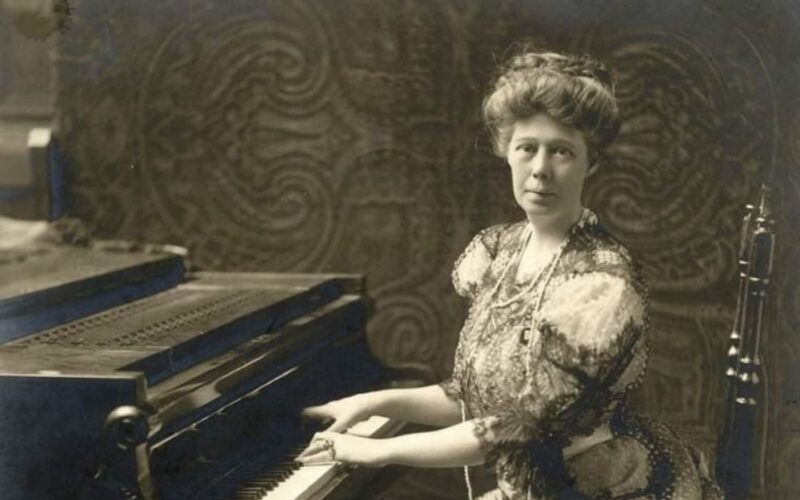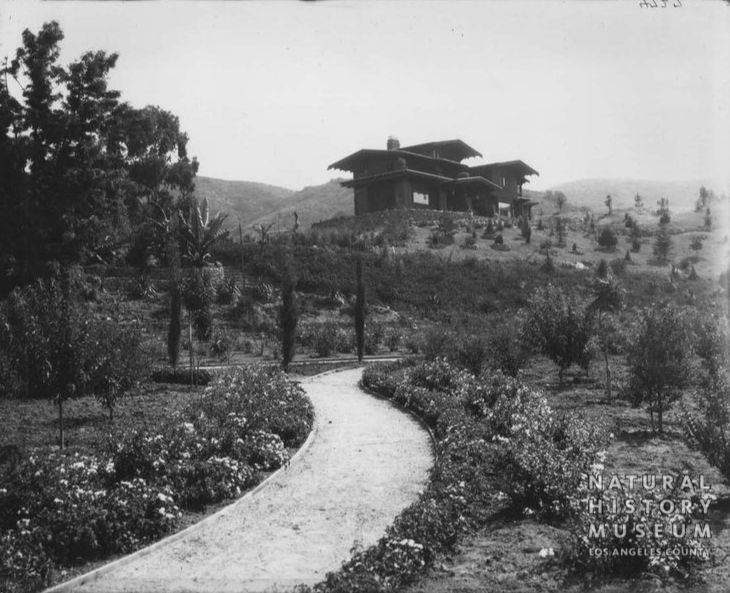The House at the End of the Road
- Oct 4, 2022
- 4 min read
Carrie Jacobs-Bond’s home, The End of the Road, was the beginning of a new chapter.

In 1916, the 54-year-old songwriter settled in Hollywood, buoyed by the success of her hits “I Love You Truly” and “A Perfect Day.”
At the end of Pinehurst Road, in the valley below Yamashiro, Jacobs-Bond built a three-level craftsman. Its name symbolized the realization of her dreams: She had amassed an estimated $1 million fortune in royalties ($30 million today, with inflation). The End of the Road still stands, although it’s hidden behind tall trees.

Jacobs-Bond’s 200-song catalogue is renowned for its sentimentality and optimism, a reflection of her own resilience: Widowed at 32 with a young son, she conquered heartbreak, poverty, and adversity to become one of the most successful female composers. In her lifetime, “A Perfect Day” sold 25 million copies.

Early in her career, as she struggled in the male-dominated industry, Jacobs-Bond established her own sheet music publishing company.
In Hollywood, she built its headquarters, The Bond Shop, on Highland Avenue, just south of Franklin, in an Old English-style commercial building that also housed Betty Bolton, a tea room and candy shop operated by her son Fred. As a nod to his mother, “The End of a Perfect Day” was inscribed on Betty Bolton boxes.
Inside the Bond Shop, there was a showroom featuring a spinet piano. Nearby on the mahogany-trimmed mezzanine, the composer kept an office. At one point, thousands of copies of her sheet music (for which she also drew the cover art) were being shipped daily from the space.
And as the owner of her songs, every penny they earned was hers.

“A Perfect Day” was an anthem during World War I, and Jacobs-Bond always included it in her concerts for troops stationed overseas. Over the years, the parlor song—especially popular at weddings and funerals—was covered by the likes of Bing Crosby and Nelson Eddy.
Throughout the 1930s and 40s, she enjoyed a renaissance, as several of her classics popped up on film “A Perfect Day,” performed by Sterling Holloway (the voice of Winnie the Pooh) in Remember the Night starring Fred MacMurray and Barbara Stanwyck; and “I Love You Truly” in I Married a Witch.
Jacobs-Bond also intended to grow her real estate portfolio with a 14-story apartment building on land she owned close to The End of the Street, bordering Pinehurst, Hillcrest, and Bonita Terrace. However, the project fell through, and today it remains a private park for residents of the surrounding Hollywood neighborhood.

The world-famous composer was especially honored in her adopted home of Hollywood. Birthdays were celebrated to the fullest, for several years at the Franklin Avenue estate of Rollin B. Lane (now the Magic Castle) and attended by scores of society’s biggest names—Mrs. H.J. Whitley, Mrs. Noah Beery, and Sid Grauman’s mother Rosa.

Those who couldn’t make it sent telegrams: For her 63rd birthday in 1925, Jacobs-Bond received well-wishes from Mary Pickford, Douglas Fairbanks, and Charlie Chaplin. To mark her milestone 70th, aviatrix Pancho Barnes wrote a message in the sky overhead.
“I would rather be 70 than 17,” she told those gathered for tea at the Lane home in 1932. “So precious have been all my years, both of gladness and grief—so fine the memories. Besides, to be 70 brings me so much nearer to certain dear ones.”

Four years earlier, at the age of 66, Jacobs-Bond suffered her greatest loss: The death of her son. The cancer-stricken father-of-two chose to end his suffering with a gunshot to the head at his cabin near Lake Arrowhead. In the room where his body was discovered, a phonograph was playing “A Perfect Day” on repeat.
“I have had a hard day,” Fred wrote in the suicide note he pinned to a dresser. “The night for me was one long nightmare.”
His adoring mother was shattered. She lost interest in making music, instead devoting her time every day to visiting Fred’s grave.
“But she doesn’t complain, she doesn’t whine,” noted the Los Angeles Record in its 1930 six-part series on Jacobs-Bond. “She just goes on, the most popular of American composers and the most unhappy, for her heart is like a bare bough in winter time without her son.”
In 1946, it truly was the end of the road for Carrie Jacobs-Bond, who passed away at her home after three decades under its roof. She was buried beside Fred in the Court of Honor at Forest Lawn cemetery in Glendale, California.

Her mausoleum is inscribed with a tribute from President Herbert Hoover, who praised Jacobs-Bond for conquering hardship and achieving her dreams: “By composing and singing her simple romantic melodies, she was America’s gallant lady of song.”
In 1953, the Hollywood Chamber of Commerce honored the iconic songwriter with a bronze memorial plaque at 1776 N. Highland, the site of The Bond Shop.
“Today, neither the present nor previous owner of the remodeled building ever heard of Mrs. Bond,” wrote the Los Angeles Times in 1978. “There is no plaque and what happened to it is a mystery. Time is no ally.”
“Her voice is the voice of humanity. She writes heart songs from her big heart through tears in a dream world of melody and poetry for the people and of the people, charming a music loving world.” — Edwin Palmer, in The History of Hollywood



Comments